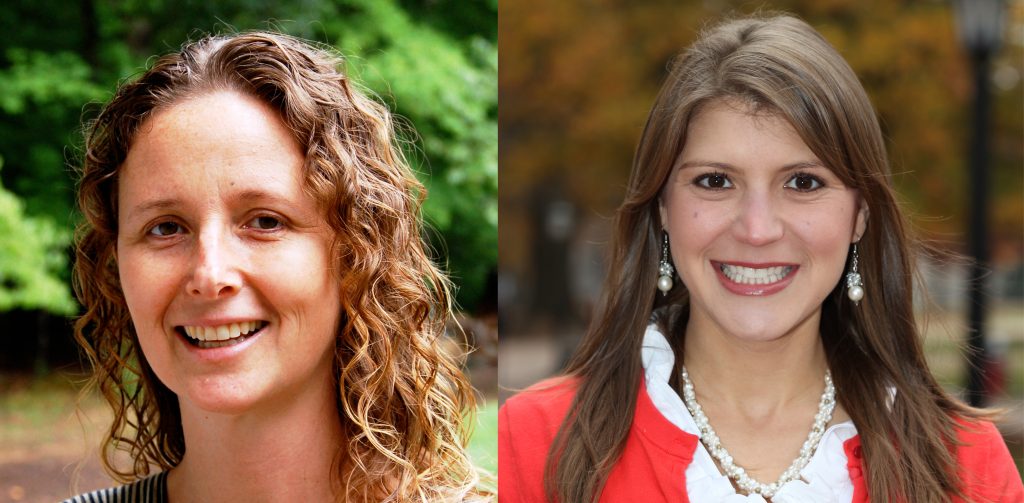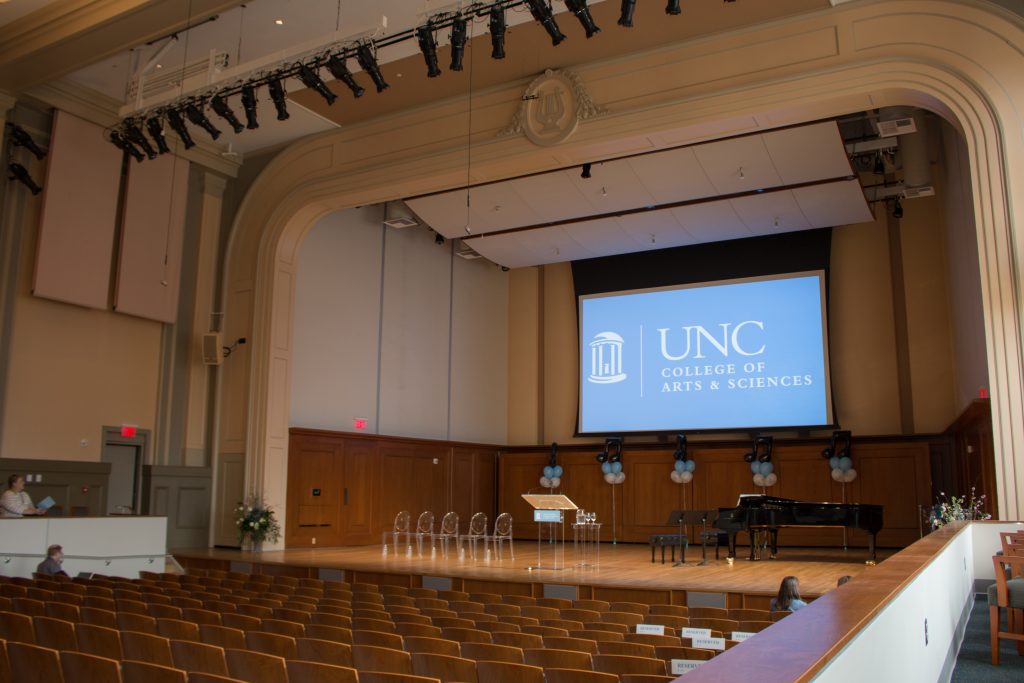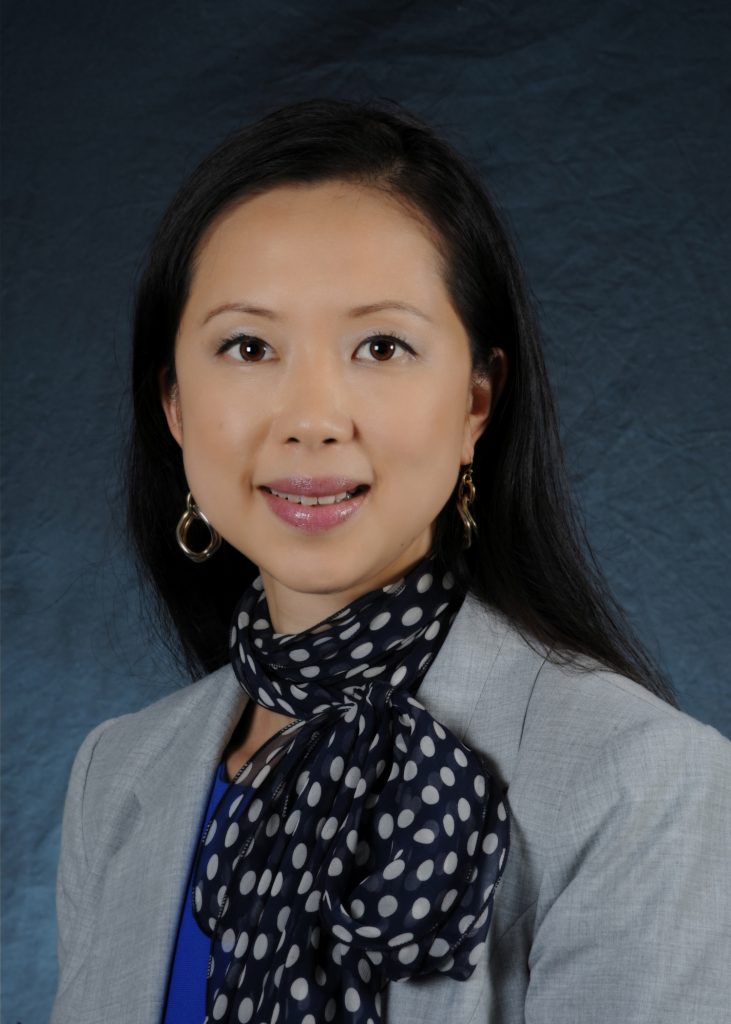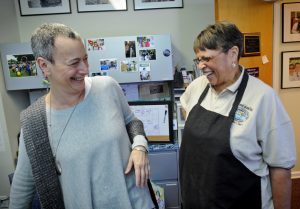
Communication studies professor Della Pollock was collecting the stories of alumni of Chapel Hill’s former all-black high school for an oral history project when one man’s statement caught her off guard.
“He said, ‘Y’all have studied the hell out of the black community and given nothing back!” Pollock recalls Ed Caldwell Jr. saying to her in 2001.
“I thought I was initiating a project about learning but I got taken down about three notches. And every time I’ve been taken down a notch since, it’s been a point of pride – and I get taken down about every other day,” Pollock says.
The comment stuck with Pollock as she dived more into her research, developed or redeveloped three courses to incorporate service-learning aspects and, a few years ago, formed the Marian Cheek Jackson Center for Saving and Making History.
The center is a public history and community development organization founded on the oral histories of the residents of Northside, a historically black neighborhood near downtown Chapel Hill. The center supports neighborhood fair housing, produces an award-winning youth radio show and organizes such university-community events as the recent Civil Rights in Chapel Hill weekend in November.
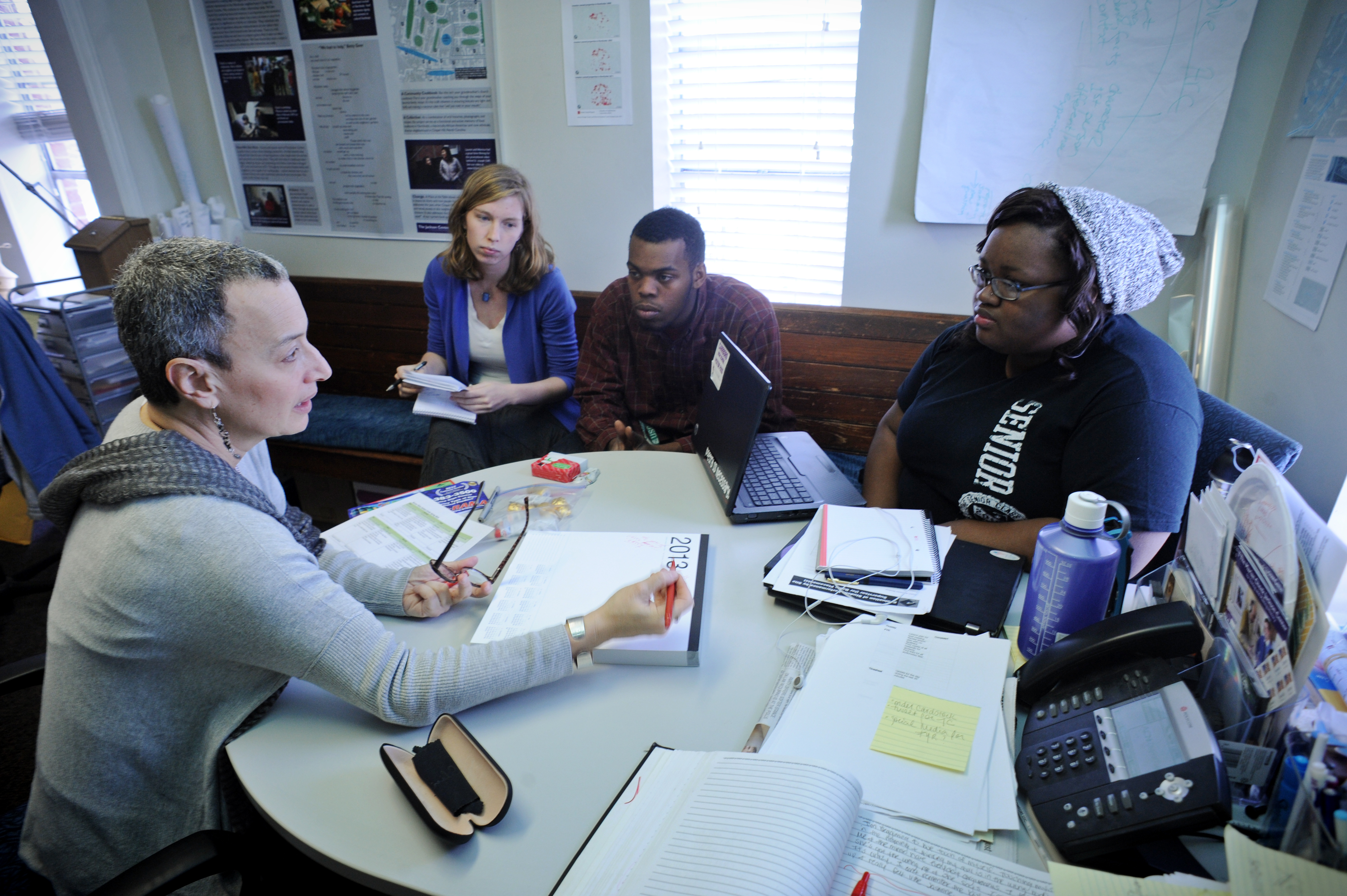
Students and former students are involved in every part of the Jackson Center. Pollock, who had a two-year appointment as a Faculty Engaged Scholar for the development of the Jackson Center, says she encourages her students to see the community as their primary classroom. Throughout related courses, the students collect oral histories of Northside residents, many of whom have lived in the area for generations. The students also develop individual or class projects, such as organizing a community festival.
The center works in collaboration with community members to make a positive influence on the Northside neighborhood, which has a rich history of life after Reconstruction through Jim Crow, civil rights action and desegregation. In the past few decades, the neighborhood has seen a large population shift as more and more homes that once belonged to Northside families have become rental homes, many leased to Carolina students.
The result is that many families can no longer afford to buy or rent in the neighborhood, Pollock says. She also notes that in some cases as students move off-campus, they “don’t understand that norms of neighborly regard, support and fellowship have defined this community for over a century,” Pollock says. She hopes that by engaging in the history of Northside through, for instance, the new audio tour or the “neighbor to neighbor” interview project, newcomers will learn how to be a generous and effective part of a world that they may not otherwise even see.
In her role as executive director of the Jackson Center, Pollock sees herself as a facilitator who supports and respects the community. Pollock says the more opportunities the Jackson Center has to involve others, the more possibilities emerge.
That was the case with the University’s recent announcement that an affiliated not-for-profit corporation, Chapel Hill Foundation Real Estate Holdings, would contract with the Center for Community Self Help to study and develop a five-year plan that aims to balance a mix of owner-occupied housing and rental properties in the neighborhood. When announcing the agreement, Chancellor Holden Thorp credited Pollock for helping prompt the University’s involvement for reasons including a commitment to cultural and historical preservation.
Hudson Vaughan, a former student of Pollock’s who is an associate director at and co-founder of the Jackson Center, says that by becoming involved Carolina is showing that it wants to have a positive stake in the community.
Pollock, who received the 2011 Robert L. Sigmon Service-Learning Award for her significant contributions to furthering the practice of service-learning, says she relishes the work she does at the center.
“I’ve just been carried along and called,” says Pollock.
[Story courtesy of UNC News Services]

